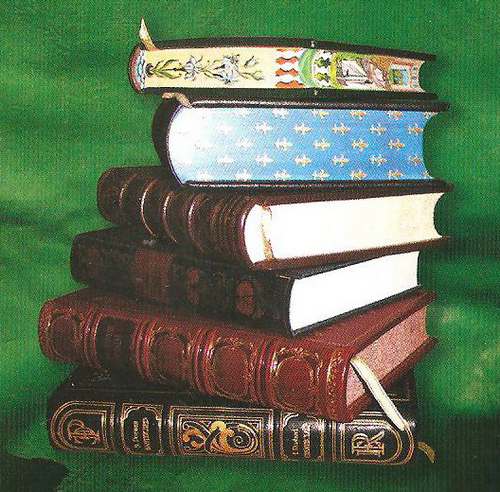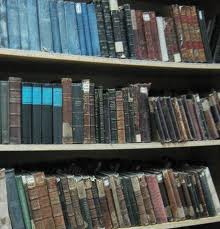- Учителю
- Урок английского языка для 7 класса «Around the world»
Урок английского языка для 7 класса «Around the world»
Educational center №1
Model lesson:
" Around the world"
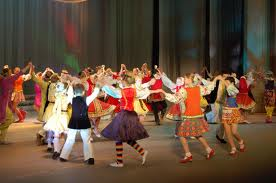
Grade: 7
Teacher: Gavrilova L.F
Kumertau
Objects:
-
To teach students the ways to preserve the planet Earth.
-
To help students understand the importance of learning languages.
-
To develop conversational skills on the topic: "Ecological problems on our planet and the ways to solve them''.
-
To learn more information about the United Nations Organization and its structure.
-
To help students realize their individuality.
-
To develop imagination.
-
To teach to live in a society.
Tasks:
1. To make a cluster to learn more about the UN.
2. To role play the UN model of school.
3. To work in groups, to use persuasive phrases and words.
4. To learn to make compliments.
Equipment:
-
Figures of a boy and a girl.
-
Names of languages.
-
Names of countries.
-
Cards with associations ( The UN ).
-
UNEP emblem.
-
Sheets of paper with the language of love.
-
Leaves with pictures of animals, birds, plants, bins.
-
A tree "Save our planet".
-
Video "Nature of Bashkortostan" .
-
Tape- recorder.
Around the world!
I . -Good morning, everybody! I am very glad to meet you, my dear
boys and girls, my colleagues and guests at our lesson.
We are going to speak about important things today, which are I should say of vital importance to the mankind. These immortal things are: peace, love and environment around the world. So, our topic today is: Around the world!
II Traditionally we'll begin our lesson with the pupil on duty. Our 2
minutes free talk. Who wants to be the immediate interpreter?
III Now I want you to look at the blackboard. There is a diversity of
languages around the world. Let's sound them: English, German,
French, Arabic, Spanish, Italian, Hindi etc.
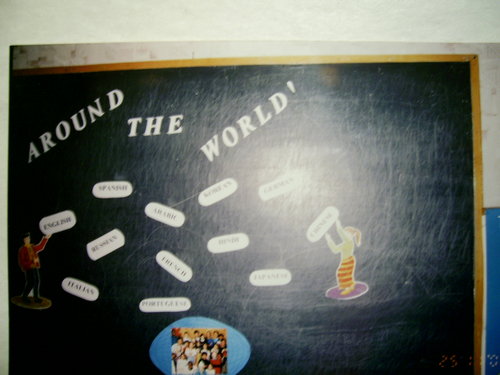
There are lots of languages around the world and lots of people
of different nationalities. Will you, please, answer my questions:
-
What is the approximate number of languages in the world? ( 5000 and many dialects)
-
Which is the oldest language in the world? ( Egyptian )
-
What languages are considered to be the most difficult in the world? ( North American Indian dialect, Tabassaran which is used in Dagestan, Esquimax, Chinese, Russian )
-
Which language has the largest vocabulary? ( Guiness Book of Records says it's the English language. 500 000 words and 300 000 technical terms )
-
Which of the languages is the official language of international aviation? International sport? Business? ( English ).
-
Do you know the countries where these languages are spoken? ( Russia, Great Britain, Italy etc )
Dear boys and girls. If some time you fall in love with a foreigner you'll have to say "I love you" in quite a different language. Will you please look through sheets of paper with the language of love and try to read some of them.
IV The United Nations Organization

Not long ago the world community celebrated an important holiday. It was celebrated on the 24 October. Who knows what holiday it is? Yes, it's really the 60th anniversary of the UN. I'd like to know how much you know about this organization.
-
Well, what associations do you have with these words, dates, figures?
-
( students give their associations ).
-
In order for you to activate your knowledge about the UN I propose you to make up dialogues. Work in groups, please. You are welcome! ( Students make up dialogues)
V I am pleased with your dialogues. As we are speaking about the UN it's time for us to have a role-play. We'll try to show you a sitting of one of the UN bodies "Economic and Social Council". We'll try to imitate one of the UN Models which are widely spread around the world. During these Models young people usually discuss problems of vital importance and adopt resolutions. They are traditionally directed to the UN Secretary General. Well, you are welcome to the sitting of the Council! But first I'd like you to enjoy some video about beauties of nature. ( Videoclipping )
-
Moshkov Sasha : " Ladies and gentlemen! I'm glad to see representatives of different countries at our sitting: Japan, Russia, the USA, Great Britain". We are going to deal with ecological problems today. 150 years ago air was pure and clean for people and animals to breathe. But then people began building factories and plants, driving cars and air began being polluted. Animals and plants began to disappear. That is a great problem. What to do? How can we save our planet? Let's try to discuss it…
( Students speak about different problems, such as:
-
Air pollution
-
Endangered species
-
Water shortage
-
Garbage and recycling
Then give their own solutions of the problems.)
-
OK. I have fixed all your suggestions and I think they are all reflected in this resolution. Listen to it, please. We'll direct it to the UN Secretary General.
-
Do you see this tree? It doesn't have any leaves, it's lifeless. Will you , please make it alive. ( Students hang leaves on the tree).
-
This resolution is very important. If we adopt it and follow it ,I am sure, everything will be all right and we'll manage to save our precious planet. And it will be green, safe and beautiful! Thank you!
VI Now it's time for relaxation. ( Meditation )
" Close your eyes and relax your entire body… Take a slow, deep breath… now exhale with a slight sigh. Take another slow breath… and exhale. Now think of a place that is special to you… It might be in your backyard or in your neighborhood, or a place you go on vacation every year… It is a place where you can relax and think and where you enjoy being… Think about the smells of that place… the sounds you hear… the things you see around you… Pay attention to how you feel in your special place… Notice what's around you… there may be trees, a lake or an ocean, people, mountains… Pay particular attention to whether or not there is any water in your special place… Now imagine that your special place changes- if your place has water in it, imagine that all of a sudden the water is completely gone. If your special place has no water, imagine it now has lots of water… Imagine what your special place is like now - what sounds do you hear?… What do you see around you?… Think about how your special place looks now and remember what you see and feel… when you are ready, open your eyes ".
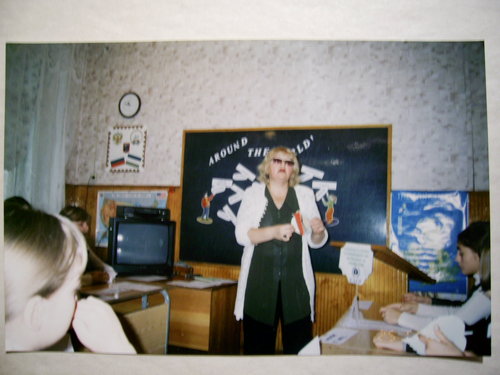
VII Well, let's turn to another aspect of our lesson. Will you, please, listen to the following expressions:
"Life is a coin. You can spend it any way you wish, but you can spend it once."
"Your life is what you make of it".
Let's have a talk on the following topic:


" Life: is it difficult or easy?"
I want you to divide in 2 groups and speak up. The first group will speak about difficulties and the other group about easiness of life. You must persuade us in your point of view. Welcome! Well done!
VIII Summing up everything that has been said at the lesson I can say that our planet is a jewel. We must protect and love it. It will be very nice if we sound A Pledge of Allegiance to the Earth.
IX We worked hard. Well done! Let's make compliments to each other. ( You look wonderful today. You are so pretty. What a lovely blouse you are wearing today. Alex, you are so strong. You've made such an interesting report at the lesson today. Your English is perfect. Your haircut is so stylish. This beautiful green scarf matches your eyes.)
X X How was it in the lesson? ( it was great, fantastic, terrific, wonderful, etc. )
Bibliography:
1.Бетти Э. Риэрдон: «Толерантность- дорога к миру». М.: Изд-во «Бонфи», 2001.
2.Coursebook. Enterprise 2. Express publishing, 1999
3. Newspaper: "English", # 17, 1994.
4. Magazine: "Speak out".
5. V.V. Safonova "English" X-XI, part I, M.: Просвещение, 1995.
6. Детская Энциклопедия «ООН: Мир на ладони»

